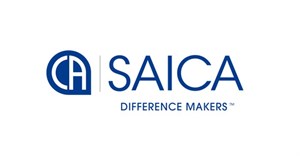
Subscribe & Follow
Jobs
- Temporary Bookkeeper - Trial Balance George
- Actuarial Analyst - Valuations Cape Town
- Tax Administrator Pretoria East
- Bookkeeping/ Accounts Clerk Temp East Rand
- Sales Agent Nelspruit
- Part time: Bookkeeper / Financial Controller Cape Town
- Financial Advisor Durban
- Financial Manager East Rand
The acceptable theft

So many of us point fingers at the rampant corruption in the public sector, while in the private sector we don't think about ourselves and the wrongs we've normalised through policy - something I like to call 'the acceptable theft'. What we should be doing is pointing fingers at ourselves, at our processes, at our norms and changing what needs to be changed. Only then can we point a finger at the next person.
“It’s okay we have a policy for that!”
“Yes, that’s allowed – we consider it accepted practice!”
It’s surprising how many times in my career I’ve heard those sentences.
In fact, they remind me of a training session I attended many years ago. The facilitator made mention of a scenario that took place in a principal’s office after a dad was called to the school after his son had stolen a pen from a classmate.
“Son, why did you do this? Why did you take something that didn’t belong to you?” asked the father.
As the conversation continued, the father then said; “Son, why didn’t you tell me, I could have taken a pen at work and brought it for you?”
I hope you’re as shocked as I was.
Because what just happened here is that the father had made unacceptable behaviour (theft) acceptable by showing that there are ways to get around the system.
Isn’t it amazing how we never reflect on our actions but we’re so quick to reflect on the action of others? In fact, we’re good at telling others when they’re wrong, but very rarely reflect on whether what we’re doing is wrong or right.
I can think of dozens of examples where, as accountants, we use policy to normalise the unacceptable
Take this next scenario for example.
A few years ago in an HR office of a company I worked for, I remember chatting to the HR manager who was shocked by the advice an accountant hadn’t given her. You see, she was told to change the company’s remuneration policy to ensure that an individual who didn’t qualify for a bonus that year would get one.
Why was she told to change the policy? Because, explained the accountant, as long as the request was ‘within policy,’ paying the undeserving employee a bonus was acceptable. Yes, that’s right, the accountant had advised the policy be changed in order to normalise something abnormal. And do you realise what that means? If somehow, someone else in the company came across this anomaly and asked for an audit trail, they’d clearly find one. The policy made it acceptable.
You don’t have to look very hard to find more examples.
Take the issue of salaries, for example.
Often you find board members will fight so hard not to pay bonuses to their staff, but go on to justify why their own bonuses should be paid.
And it’s not just boards that manipulate the salary situation.
It’s frightening how often I’ve heard employees utter words like: “If my boss likes me, I can never underperform.” In fact, I recall once a staff member openly admitting to me that he received a bonus far bigger than he deserved because he knew how to make his boss happy. This is another great example of a bonus being paid when it wasn’t actually earned. But, you guessed it, because there was a clear policy, a detailed document trail and the performance assessment process was followed to the letter, no one could dispute the ‘theft’.
I hope you’re starting to see the problem here.
Even if it’s clear that we are stealing from an organisation, if there’s a process that you can motivate for, no one views this behaviour as corrupt. And this, once again, makes it acceptable.
Instances of ‘acceptable theft’ aren’t always as easy to spot as you think
The first few examples I’ve outlined are pretty transparent. But here’s the thing, ‘acceptable theft’ takes place in a number of ways.
Consider this common scenario…
Imagine standing in line at the airport when you bump into a friend that you haven’t seen in years. You catch up. He tells you about his businesses and, because you like what you hear, you promise to give him work. Indeed, the next day you set up a meeting to discuss business. And even though you haven’t gone through the procurement process, he starts working for you. A month later, you receive an invoice to the value of R1m dated 14 February 2020. You sign it and take it to the finance department for payment but are asked for the procurement documents so that they can add the business to your company’s vendor list. The problem? You haven’t followed the procurement process and the vendor documents were never done. Luckily, you know just how to fix it. You ask your friend to send all the necessary forms, you sign them, issue what procurement calls a ‘single source motivation’ letter and date all these forms before 14 February 2020. Everything is in order, right? Yes. But once again, you’ve simply made ‘corruption’ acceptable by making sure that the paper trail looks like policy was followed. And you sleep soundly at night since no one was hurt so it must be ok.
The same happens when it comes to issues of nepotism.
Imagine receiving a call from a friend who tells you that he’s been struggling to get a job. Naturally, you want to help. So you say: “Don’t worry, our company has an opening coming soon. I’ll keep you in the loop.” Later that day, you start drafting the job description, tailor-made for your friend. The advertisement goes out and you send it to your friend as promised – after all, you know he’s perfect for the job. When it comes time to review the CVs, you’re delighted that your friend’s CV is in the pile and since your company’s recruitment policy requires at least four people to be interviewed, you select three other candidates for the process. Interview dates are set, interviews are done and just like that, your friend has the job. If anyone finds out about your connection, you’re covered, right? You followed the policy and the best person got the job. Sure, as the business leader, you were part of the interview panel and expressed some very strong opinions on all the candidates, but the process was followed to the letter. Since your friend doesn’t report to you, no one can even accuse you of nepotism. And, once again, corruption and lack of ethical behaviour have just been normalised.
Looking inward – the best way to curb ‘acceptable theft’
See how easy it is to talk about corruption and say that you’re an advocate for a world without corruption or any unethical behaviour when daily you fail to look inwardly?
The issue of ethics and corruption isn’t just about pointing fingers at what people are doing wrong. We need to look inward. We can’t have one set of standards for ourselves and a different set for others.
Simply put: If it’s wrong, even if you can do it within policy, it’s wrong! Don’t accept anything less. Even if it sounds correct or even noble, you can’t accept it on the matter whether policies allow it or not.
Maybe you can’t open up and speak in your environment, but find one person who will listen. If it means you walk out of your job, do so. As business leaders (future and present) we can’t make things acceptable by digging our heads in the sand and perpetuating the problem by staying quiet and normalising the abnormal.

- The upcoming debate on confidentiality and beneficial ownership28 Oct 13:34
- Global Ethics Day: Most employees say they don’t work in an ethical culture16 Oct 15:15
- South Africans down under take centre stage at Saica’s Australia Awards01 Oct 13:04
- Saica summit highlights collaboration as key to addressing the public sector challenges06 Sep 10:46
- Amendments shed light on renewable electricity contracts29 Aug 12:58
















